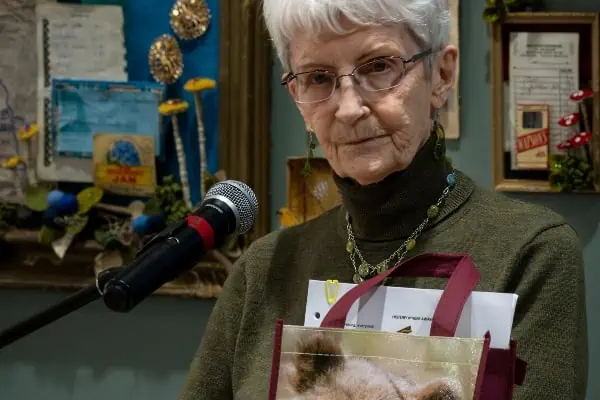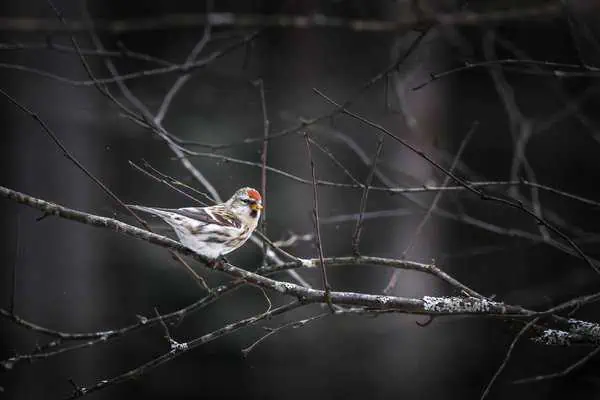The shortest words usually have the longest definitions. The Merriam-Webster dictionary lists 18 uses for the word the. Reading through these, I noted that several of them apply to the Yukon. The second definition in the list applies nicely, in a poetic sense: “B. — before nouns that designate natural phenomena or points of the compass, ie. the night is cold, the north.”
The 18 definitions seem to show that we use the word “the” to indicate when something is distinct.
This may be why we have used the word “the” in “the Yukon” since the territory was officially established in 1898. Most folks continue to say “the Yukon” to this day.
However, the name “the Yukon Territory” was officially changed to “Yukon” on April 1, 2003. It may come as a surprise to Yukoners that the “the” was officially dropped 10 years ago, but maybe that is just a reflection of Yukon time.
I did a quick and dirty email poll asking Whitehorse residents their thoughts about the name change. All but one of the respondents still say “the Yukon.” Since, according to an April 2013 Yukon Bureau of Statistics report, a whopping 40.4 per cent of working Yukoners are employed by one of the four levels of government in the territory, I thought it best to withhold the names of the respondents quoted here. Because, even if government workers say, “Yukon” by day, they, their spouses, and families say “the” by night. Anonymity will keep that 40.4% from experiencing “the” scrutiny at the workplace.
Here’s what everyone had to say (sic):
“Neglecters of the ‘the’ are sore thumbs – gov’y brown-nosers or cheechakos. We should also call the Klondike by its true name: The Trondek.”
“It is the Yukon. I grew up in the Yukon and proper grammar does not recognize that languages are living organic structures that express regional, cultural and historical differences that inflect curiosities into our day to day lives that keep us from [becoming] a homogeneous blob”.
“I love saying THE Yukon, it just makes sense! I was of the understanding that YG were the only ones who used the ‘the-less’ version… a bit of bourgeoisie to separate them from the commoners? Personally, I think it just sounds awkward without the ‘the.'”
“I absolutely say ‘The Yukon’… and it’s the Two Mile Hill not Jack London Boulevard. I love the Yukon. I live in the Yukon and I am proud being in the Yukon. Yipee.”
“I am a relative newcomer to the Yukon, having only been here a little over 30 years. However in that 30 plus years the various governments have raised the topic of ‘Yukon’ versus ‘the Yukon.’ If my poor old brain remembers correctly it has come up many times and I do not remember what the out comes of all those discussions were and really, I do not care. I will continue to use what ever sounds correct to my ears… no mater what the official out come is… this time. I live in the Yukon… Yukon is one of three northern territories. I come from the Yukon.”
“I always say the Yukon, just like I always say the NWT. I think this is just another governmental make-work project.”
“I’m born and raised in the Yukon, and that’s how we’ve always said it. When I try to say Yukon, as in, ‘I’m born and raised in Yukon,’ it feels flat, like a precise and significant volume of meaning is encapsulated in the use of THE. The Yukon is the Yukon because it’s singular in nature, unique, and the only one.”
“Truthfully it has always been ‘The Yukon’ for me. Why? That’s what I grew up with. But I think The Yukon looms so epically in people’s mind, and for that we get a ‘the’ at the beginning.”
And finally, the one person who buys into calling it Yukon, not the Yukon, says, “Yukon is more powerful.”
Why the Government of Yukon Dropped the The
I asked Joanna Lilley, senior communications adviser in the Executive Council Office of the Government of Yukon about the name change. While Lilley explained to me that there are no costs associated with the official name change, as Yukon Government “only make changes as opportunities come up,” I personally surmise that there are hidden costs in time spent adjusting documents, websites, signage, etc. Consider: since it costs $50 for one Yukon resident to register a personal name change with the Vital Statistics Office, and millions of dollars for a corporation (“Research in Motion” to change their name to “Blackberry”, for example), the Yukon Government name change costs must fall somewhere in between. Here are Lilley’s responses to my other questions.
ADR: When did YTG decide to remove “the” from “the Yukon” and why?
JL: The Government of Yukon recommends that departments use ‘Yukon’ rather than ‘the Yukon.’ This is based on the wording in the Yukon Act of 2003, which doesn’t use ‘the’ Yukon. We feel that this better reflects our status as a territory with province-like powers. We’re ‘Yukon’ just as Saskatchewan is Saskatchewan and Nova Scotia is Nova Scotia. We think it’s important to be consistent as a government.
ADR: What is the benefit of making this change?
JL: It helps put us on the same level as other jurisdictions (the provinces). We also think it’s important to be consistent as a government and it saves us time as the decision about whether to say ‘the’ Yukon or not has already been made.




